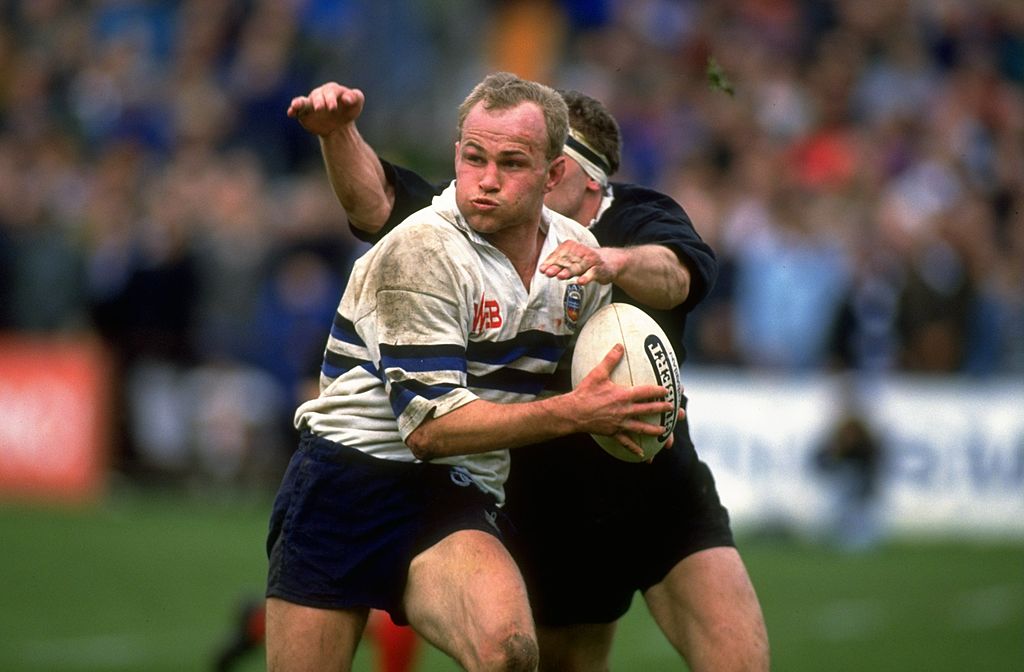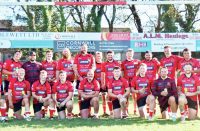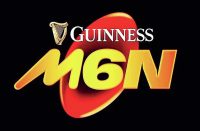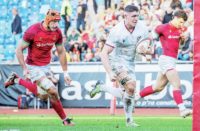LAST week we highlighted the achievements of one great Bristol Rugby nursery – St Brendan’s College – and this week we concentrate on the school that succeeded St Brendan’s as the top dogs in the area and, for the best part of a decade, the country.
Colston’s Collegiate were an outstanding team by any criteria, famously the winners of six straight Daily Mail Cup finals and seven in total during their pomp, a run which at one stage saw them win 52 consecutive games in the tournament.
The Bristol school proved to be a remarkable conveyor belt of talent for various England Schools age groups and you could make a strong argument for their sides of the late 1990s being as strong as any schools Fifteens ever seen in Britain.
Nearly 50 Colston’s old boys from the modern era have played professionally including Callum Braley, Jake Polledri, Olly Barkley, Gareth Delve, Jordan Crane, Shane Geraghty, Lee Mears, Tom Varndell, Duncan Bell, Alex Crockett, Ryan Davis, Chris Brooker, Sam Cox, Iain Grieve, Callum Black, Alex Brown, Warren Fury, Jonathan Mills, Andy Lloyd and Spencer Davey. More recently their women’s side has produced England centre Amber Reed.
The school courted a deal of controversy, however, as dominant winning teams often do. Colston’s were undoubtedly at the forefront of recruiting – ruthlessly cherry picking some argued – top rated U16 players into the Sixth Form on scholarships to considerably bolster their squad strength.
Their detractors also pointed to modest results for the Colston’s teams down the school and it is indeed noticeable that none of the successful Daily Mail U18-winning year groups achieved success in earlier U15 tournaments as they progressed through the school.
The notion, however, that Colston’s were the only school ‘recruiting’ top young players is nonsense. The practice is as old as the hills while many other well-established schools also had the advantage of associated prep schools who automatically fed their best talent to the mother school or the school they enjoyed close historic links with.
Nor should one dismiss the huge input of two quite exceptional coaches who adopted professional attitudes with their pupils at the dawn of professionalism itself. Colston’s were ahead of the game.
Andy Robinson needs little introduction and was the master in charge for their first two years of success in the Daily Mail in 1995 and 1996 before becoming head coach at Bath, where they were soon to win the Heineken Cup, and assistant with England who became world champions in 2003.

Robinson was assisted and then succeeded on his departure by another cutting-edge coach in Alan Martinovic who presided over the next four titles between 1997 and 2000 and then a final flourish of success in 2004. Later, from 2009 onwards, Martinovic took over at Hartpury College where, if anything, that institution, under his guidance, became an even greater nursery ground of outstanding rugby talent.
Great school sides tend to occupy eras and that is what happened with Colston’s under first Robinson and then Martinovic.
Colston’s purple patch lasted longer than most but like all great school sides the bubble eventually burst, and it was somebody else’s turn to dominate and shine.
There was a decent rugby heritage at Colston’s before their halcyon years. Prior to that Alan Morley was probably their best-known product, a Bristol legend who scored 384 tries in 519 appearances for Bristol. Morley’s total of 479 tries in all senior matches is still quoted as a world record.
Despite scoring the game’s only try in England’s historic win over South Africa in Johannesburg in 1972 Morley had to make do with just seven England caps and another Colston’s man who suffered at the hands of the England selectors was Jack Spoors.
Spoors was the star turn in the three England trial games in 1910 scoring a try in each game but got controversially overlooked for an all-Harlequins back division. The Lions, though, were delighted to offer him a place on their tour of South Africa when he started all three Tests while he played 19 games in total on tour and finished as the squad’s leading points scorer.
Other notable rugby alumni include kicking coach and golf guru Dave Alred, Bristol legend Mike Ellery, whose 44 tries in the 1961-62 season is still a club record, and distinguished former Daily Telegraph rugby correspondent John Mason.
The school’s rugby fame does, however, unquestionably rest on their ‘golden era’ which began in 1995 with a 23-0 win over QEGS Wakefield in the Daily Mail final with the same opponents meeting at the same stage 12 months later when Colston’s won 20-0.
The following season came one of their fiercest challenges with Kirkham GS, including both Pat and Alex Sanderson, really extending Colston’s before the Bristol school took the honours 23-12.
The following year (1998) it was RGS High Wycombe who were up for the challenge and this really was an epic encounter with the Colston’ s pack struggling to subdue the RGS backs who were launched by Nick Duncombe. Eventually Colston’s scraped home 21-19 by far their closest call during their long unbeaten run. The same two schools met in the final the following year but this time Colston’s were much more dominant winning 42-17.
Their final victory in the run of six came against old rival QEGS Wakefield, who they thumped 33-0 continuing the record of never having conceded a point against the Yorkshire school in three finals.
Coslton’s took a three-year break from the competition but there was no fall off in the quality of the team. In the first year their only defeat was to Millfield at the St Joseph’s tournament while the following year, although losing a regular season game to Llandovery, they won the St Joseph’s title. During their third season away from the Daily Mail Cup, Colston’s lost just one game, to Ysgol Gyfun Glantaf.
In 2003-4 the school returned to a competition in which the new regulations stated that no side could field more than three players who had not been in the school the previous year. With Shane Geraghty pulling the strings at fly-half, they recorded their most emphatic ever win in a final, thrashing Barnard Castle 48-0, a Barnie side that had lost just two matches that season.
Colston’s were unbeaten in 21 matches that season and recorded outstanding wins in friendlies over Terenure College (41-0), Brighton College (55-7), RGS High Wycombe (52-0) and Blackrock College (17-10). In the Cup only an exceptional John Fisher side provided serious opposition before Colston’s eased home 15-5.
Colston’s were very strong again the following season but were finally downed in the Cup when St Peter’s York scored a surprise 19-14 win in the semifinal to bring the long run to an end. It was Colston’s first defeat in the competition since they had lost to RGS Guildford nearly ten years earlier.
Since then there have been no more glories although unlike St Brendan’s there has been no terminal decline. Colston’s are still a more than decent rugby school with a strong and testing fixture list.
They struggled last season and had to suck up a 66-0 defeat at Exeter school and a 47-7 reverse to Beechen Cliff School, but the season before they lost only three games.
For the best part of a decade, though, it was Colston’s who set the pace and dragged everybody to a higher level.























